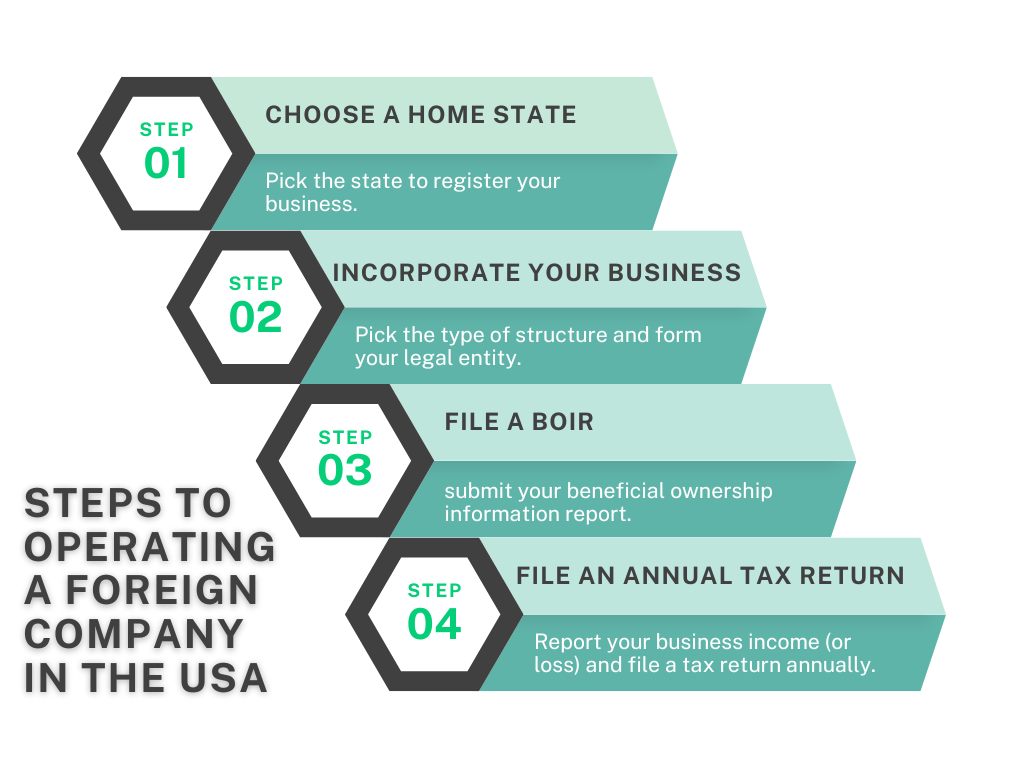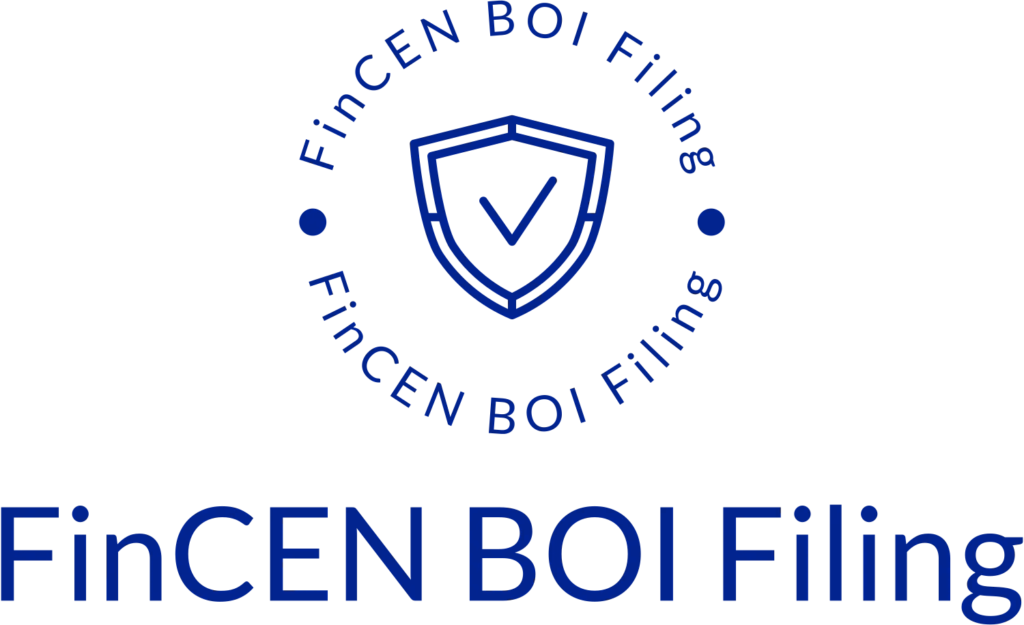Hola amigos en Panama! Si tienes un negocio en Panama pero operas en los Estados Unidos, es importante que estés al tanto de los requisitos de cumplimiento, legales y de informes de propiedad beneficiosa. Sabemos que puede ser un desafío navegar por las regulaciones en ambos países, pero estamos aquí para ayudarte a entender y cumplir con todas las normativas necesarias. En este blog, te proporcionaremos información clave y consejos útiles para asegurarte de que tu negocio cumpla con todas las leyes y regulaciones aplicables en ambos países. ¡Sigue leyendo para obtener más información!
Registration Requirements
The United States consists of 50 states and 5 territories, each with its own set of business regulations. To operate legally, businesses must adhere to both state-specific rules and federal laws.
State-Level Registration:
When establishing a business presence in the United States, businesses from Panama must complete state-level registration in any state where significant business activities occur. This requirement typically applies if your company:
- Has a physical presence in the state
- Frequently meets with clients in the state
- Derives a significant portion of revenue from the state
- Has employees working in the state
Incorporating your Panamanian Company in the US
Even if none of the specific criteria apply, a Panamanian company must still choose a home state for registration when conducting business in the US. This involves forming a U.S. entity, such as a corporation, LLC, or other business structure, in that state. This registration ensures that the company is officially recognized and compliant with US regulations, regardless of its level of business activity in any individual state.
The newly formed U.S. entity will operate as a subsidiary of the foreign company. This means that while the U.S. entity is legally independent, it remains under the ownership and control of the parent company based in Panama. This structure allows the company to conduct business in the US while maintaining its international headquarters.
We recommend using Northwest Registered Agent if your foreign company needs to incorporate. They offer expert guidance and can serve as a reliable registered agent for your business, ensuring compliance and smooth operations.
Federal Requirements
In addition to state requirements, Panamanian companies must also comply with federal regulations:
- Federal Tax ID: Obtain an Employer Identification Number (EIN) from the IRS. This number is essential for tax reporting and opening U.S. bank accounts.
- Industry Regulations: Companies may need to follow specific federal regulations depending on the industry. For example:
- Import/Export Laws: If the company is involved in importing or exporting goods, it must meet U.S. customs regulations. This includes adhering to rules for tariffs, duties, and necessary documentation.
Beneficial Ownership Information Reporting Requirements
For Panamanian businesses conducting operations in the U.S., adhering to Beneficial Ownership Information Reporting (BOIR) requirements is crucial. The Corporate Transparency Act mandates that companies disclose the individuals who own or control them. This applies to most entities, including those that are incorporated or registered in any U.S. state. The goal is to enhance transparency and combat illicit activities such as money laundering and terrorism financing.
A beneficial owner is an individual who controls the company or owns 25% or more of its shares, either directly or indirectly. For compliance with BOIR requirements, businesses must report information about these individuals, including their names, addresses, and identification details. Failure to file this report can result in significant penalties and legal consequences. Therefore, companies from Panama need to ensure they meet these reporting obligations promptly and accurately.
For your convenience, you can file your Beneficial Ownership Information Report directly on our website. Click here to complete the process in just a few minutes and ensure your business complies with U.S. regulations.

Additional Considerations for Panamanian Businesses:
Tax Treaties
Panama and the United States do not have a tax treaty in place. This means that businesses from Panama operating in the USA may face double taxation on their income, as both countries can impose taxes on the same earnings. Without a tax treaty, there are no agreed-upon mechanisms to prevent or alleviate this double taxation situation. Panamanian businesses should be aware that this could significantly impact their profits and tax obligations when engaging in commercial activities within the United States.
Trade Considerations
When conducting business with the USA, Panamanian companies should be aware of the United States-Panama Trade Promotion Agreement (TPA), which entered into force in 2012. This agreement eliminates tariffs and removes barriers to U.S. services, including financial services, telecommunications, energy, and others. It also provides a framework for robust protections for U.S. investors in Panama. Panamanian businesses should familiarize themselves with the specific provisions of this agreement, as it may offer opportunities for preferential market access and reduced trade barriers. Additionally, companies should stay informed about any updates or modifications to the TPA, as well as any industry-specific regulations that may apply to their particular sector. Consulting with trade experts or legal professionals specializing in international trade can help ensure compliance with all relevant agreements and regulations when doing business with the USA.
Your Path to Compliance: Key Takeaways for Panamanian Businesses in the U.S.
Operating a Panamanian business within the USA requires careful attention to legal obligations, from establishing your home state to incorporating and filing a beneficial ownership report. Meeting these requirements is essential for ensuring compliance and securing your business’s success in the American market. By understanding and adhering to these steps, you can confidently navigate the complexities of doing business in the U.S. and focus on growing your enterprise.
Ready to get started? Click here to file your BOIR in just a few short minutes. We make the process easy, fast, and secure so you can focus on what matters—your business.
Frequently Asked Questions
Have questions about the Beneficial Ownership Filing process? Check out FinCEN BOI Filing's frequently asked questions for the answer.
Are there penalties for not filing a BOI report?
Yes, failing to file a BOI report can result in substantial penalties, including hefty fines and potential legal repercussions. Learn more about the BOI deadlines and non-filing BOI penalties.
How do I file a BOI report?
Filing a BOI takes about 5-10 minutes and can be done here. If you’re not sure if you are required to file, you can take the one minute BOI Eligibility Quiz.
What is a BOI report?
Filing a BOI takes 5-10 minutes and can be done here. If you’re unsure if you are required to file, you can take the one minute BOI Eligibility Quiz.
What information is required in a BOI report?
You’ll need details of beneficial owners (name, address, ID number) and basic company information (name, address, registration details). Check out our ultimate guide to filing a BOI report for a complete list of items needed.
Who needs to file a BOI report?
Generally, most businesses, except for some exempt categories like publicly traded companies, are required to file a BOI report. For a comprehensive list of businesses who need to file, check out the essential guide to BOI reporting.
When is the BOI report due?
The due date for BOI reports varies based on jurisdiction and specific business circumstances. You can learn more about the BOI deadlines here.




